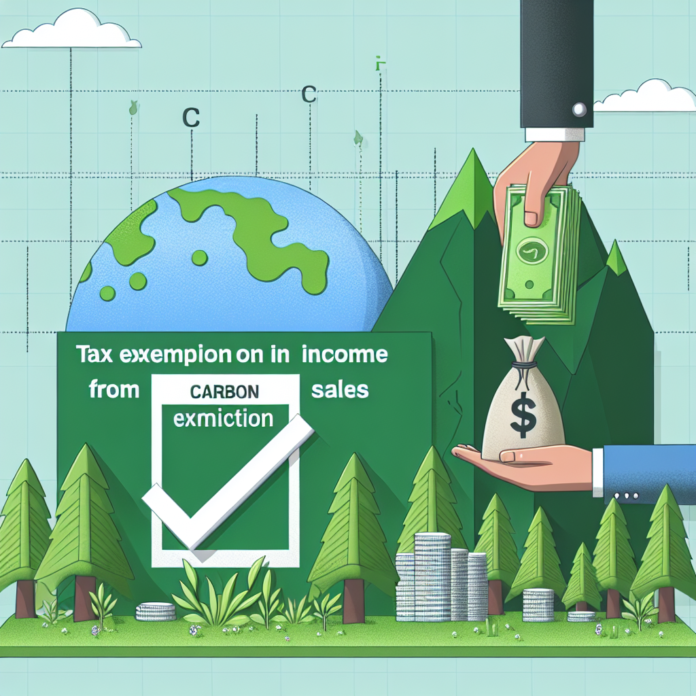Proposal for Tax Exemption on Income from Carbon Credit Sales in Vietnam
Proposed Tax Exemption for Income from Carbon Credit Sales
VietNamNet reports that a significant proposal has emerged regarding the taxation of income generated from the sale of carbon credits. This initiative aims to stimulate the market for carbon credits and encourage more companies to participate in environmentally sustainable practices.
Understanding Carbon Credits
Carbon credits are a crucial component of the global effort to reduce greenhouse gas emissions. Each credit represents a permit to emit one ton of carbon dioxide or its equivalent in other greenhouse gases. Organizations can earn these credits by implementing practices that reduce emissions, such as investing in renewable energy, enhancing energy efficiency, or engaging in reforestation projects. These credits can then be sold to other companies looking to offset their emissions.
Proposed Tax Benefits
The proposed tax exemption would allow companies to retain more of their earnings from carbon credit sales, making it more financially attractive to invest in sustainable practices. By removing the tax burden on this income, the government aims to incentivize businesses to engage in carbon-reducing activities, thus contributing to the country’s overall environmental goals.
Potential Economic Impacts
This proposal could have far-reaching economic implications. By fostering a more vibrant market for carbon credits, it may lead to increased investment in green technologies and projects. Furthermore, this tax exemption could position Vietnam as a leader in the Southeast Asian carbon market, attracting international businesses looking to offset their emissions and comply with global sustainability standards.
Global Context
Many countries around the world are already implementing similar tax incentives to promote carbon trading and reduce emissions. For instance, the European Union has established a comprehensive carbon trading system that encourages companies to lower their carbon footprints. By aligning with these global practices, Vietnam could enhance its participation in international carbon markets.
Challenges Ahead
Despite the potential benefits, the proposal may face challenges in its implementation. Concerns regarding the monitoring of carbon credit transactions and the potential for market manipulation must be addressed to ensure the integrity of the system. Additionally, education and awareness campaigns may be necessary to help businesses understand the value of participating in carbon credit markets.
Conclusion
The proposed tax exemption on income from carbon credit sales represents a significant step toward promoting sustainable practices in Vietnam. By encouraging businesses to engage in carbon reduction efforts, the government is not only addressing environmental concerns but also paving the way for economic growth in the green sector. As this proposal moves forward, it will be crucial to navigate the associated challenges to maximize its potential benefits for both the economy and the environment.


